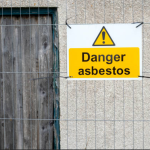Table of Contents
- Understanding HOA Management
- Key Responsibilities in HOA Management
- Benefits of Quality HOA Management
- Challenges Faced by HOA Managers
- The Importance of Communication in HOA Management
- The Future of HOA Management
- The Essential Role of HOA Management
Understanding HOA Management
For many homeowners living in planned communities, HOA management is more than just industry jargon; it’s the backbone of their neighborhood’s operations. Homeowners’ Association (HOA) management refers to the strategic oversight and administration of community operations. This includes the upkeep of shared spaces, ensuring rule compliance, and preserving the overall character of the neighborhood. Each community is unique, so effective HOA management must be tailored to meet the specific needs of its residents. Professional services such as HOA Management Denver provide customized management solutions, helping communities function smoothly and efficiently.
The core idea of HOA management is to enhance the quality of life for residents. This is achieved through a delicate balance of operational efficiency, financial stability, and community harmony. This structure provides peace of mind for many homeowners, knowing that their investments and living conditions are in good hands.
Key Responsibilities in HOA Management
HOA management encompasses a diverse array of responsibilities, each integral to the seamless functioning of a community. Here’s a closer look at some of these essential roles:
- Budget Management: Financial stewardship is a significant part of HOA management. Effective budgeting ensures that community funds are wisely allocated to maintain amenities, plan for future expenses, and cover unforeseen costs. Financial health relies heavily on creating and adhering to budgets, which must be transparent and accessible to residents.
- Maintenance Oversight: Regular maintenance is crucial in preserving shared spaces’ aesthetic value and functionality. Whether regular landscaping or urgent fixes, proactive upkeep prevents minor issues from growing into expensive problems. A suitable HOA management system ensures that maintenance tasks are handled efficiently and meet community standards. Understanding the division of responsibility between homeowners and the HOA is essential, as outlined in this New York Times article, which explores when an HOA is responsible for repairs within a home.
- Enforcing Community Rules: HOAs have governing documents and bylaws designed to maintain order and uniformity within a community. Enforcing these rules fairly and consistently is key to preventing conflicts and ensuring that all residents enjoy equal rights and responsibilities. This can sometimes involve mediation and conflict resolution to uphold community peace.
Benefits of Quality HOA Management
The advantages of quality HOA management can be observed in numerous aspects of a community. First and foremost, well-managed neighborhoods often boast enhanced curb appeal thanks to regular maintenance and aesthetic oversight. This attention to detail improves the living environment and significantly boosts property values, making it an attractive proposition for both homeowners and potential buyers.
Additionally, effective HOA management can cultivate a tighter-knit community. Hosting events and encouraging resident engagement fosters a feeling of community and collective goals. This improves individual well-being and enhances collective community pride and resilience. Lastly, efficient management helps prevent and resolve disputes, ensuring a peaceful and harmonious living environment.
Challenges Faced by HOA Managers
While the benefits are substantial, HOA managers face their share of challenges. One of the most common hurdles is balancing the diverse needs and expectations of a community’s residents. With varying opinions on financial allocations, aesthetic choices, and rule enforcement, managers must possess diplomacy and flexibility.
Budget constraints are another significant challenge, as managers must maintain high standards without overstepping financial limits. Legal complexities, such as state-specific regulations, also require a keen understanding of the law. An HOA manager should be equipped with proper training, experience, and resources to navigate these challenges successfully.
The Importance of Communication in HOA Management
Effective communication is the cornerstone of successful HOA management. It facilitates transparency, reduces misunderstandings, and encourages resident participation. Consistent newsletters, community gatherings, and online platforms can help preserve open communication and keep residents updated on community choices and progress.
By fostering communication, HOAs can tap into the community’s wealth of ideas and suggestions, turning potential issues into opportunities for growth. Open dialogue helps address grievances swiftly, maintaining residents’ trust and satisfaction.
The Future of HOA Management
The realm of HOA management is quickly changing, propelled by technological innovations that aim to simplify numerous conventional procedures. Today’s digital tools provide a platform for better communication, real-time updates, and seamless administration of large-scale communities. These tools are becoming indispensable to modern HOAs aiming to enhance their operational efficiency.
Software applications can automate repetitive tasks, like payment processing and maintenance planning, allowing managers to dedicate more time to strategic community projects.
The Essential Role of HOA Management
In conclusion, HOA management is fundamental to maintaining community infrastructure and fostering a thriving social environment. Through dedicated management efforts, communities can enjoy enhanced property values, improved quality of life, and a harmonious residential atmosphere. By emphasizing effective leadership and adopting contemporary strategies, communities can successfully tackle upcoming challenges, fostering a thriving and sustainable environment for future generations.














